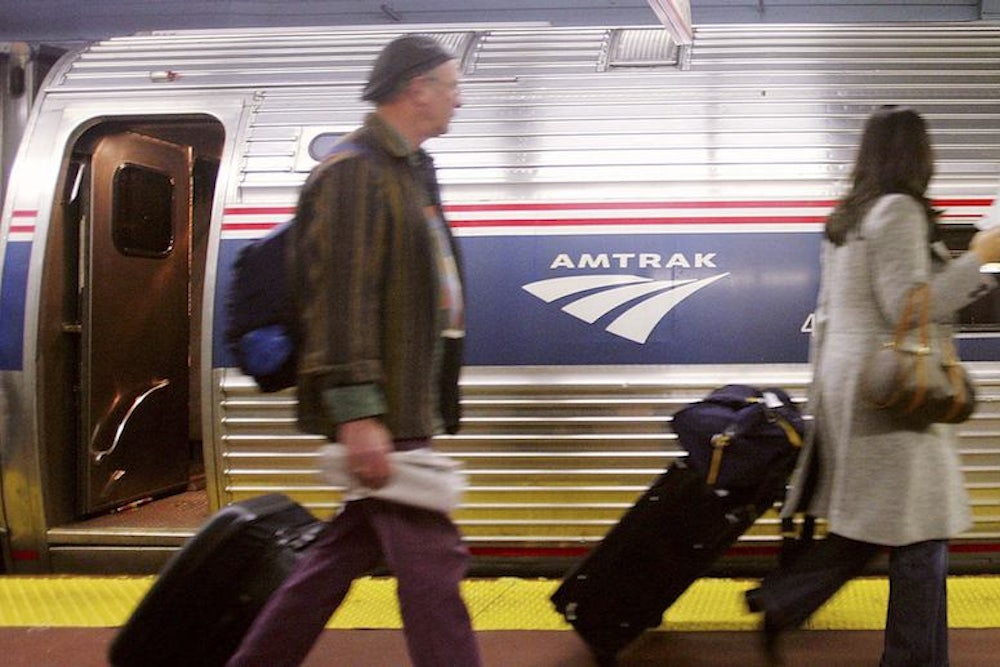This week, Twitter and the blogosphere were abuzz with the news that Amtrak has begun to offer "writers' residencies," the kind of working vacation ordinarily associated with grand New England estates like Yaddo and MacDowell. The scope of the program so far is limited—as far as I can tell, only one writer has actually taken a free trip on an Amtrak train, Jessica Gross, who wrote about traveling from New York to Chicago and back for The Paris Review. But writers have responded to the idea with a kind of passionate enthusiasm that suggests the potential applicant pool will be deep.
Part of the delight provoked by the plan has to do with the seemingly off-handed way it came to be. The idea of writers using Amtrak trains to get work done was broached by Alexander Chee in an interview in December; when Gross tweeted at Amtrak about it, the company quickly made it happen. As it happens, right around now is the time poets across America are wrestling with the unbelievably complicated online application process for NEA grants. By contrast, the ease and speed with which Amtrak decided to dispense its largesse feels positively humane. There is a certain PR benefit for the railroad company, of course—this is probably the first time in ages that Amtrak has made the news without the words "accident," "delay," or "cost overruns" in the headline. But there is also a sense that the people running the railroad actually responded to the idea that, somewhere in America, there are passengers for whom the idea of riding Amtrak is a dream, not a chore.
And what's in it for the writers/riders? Not luxury, certainly: My memories of a long-ago overnight trip from Boston to Washington are of a tiny metallic roomette, in which the foot of the bed folded down directly over the toilet. Yet I still remember that trip as one of the best travel experiences of my life, not despite but because of the barebones nature of the accommodation. In the days of the Pullman cars, riding a train might have been like staying in a grand hotel; today, it's more like camping out. But writers have always been drawn to garrets, since the more of the outside world you can shut out, the more space the inner world has to grow.
The fact that Amtrak's writers’ residencies are not actually journeys to get somewhere, but self-contained round-trips—you don't even have to get off the train at its destination—only enhances their appeal. Creative writing involves a deliberate rejection of practicality: To get into the right mood for writing requires short-circuiting our usual calculations of profit and loss, since there is nothing as gratuitous as a poem or story. Waste, as the poet said, is of the essence of the scheme. On a train, time and place are suspended in the name of a long-term goal, getting from one place to another; take away that goal and you have as close to a zone of pure freedom as you are likely to find anywhere in the twenty-first century.
Perhaps there is a certain charm, too, in the fact that the train is an obsolete mode of transportation, much as literature sometimes suspects that it is an obsolete form of communication. To choose to ride the train when you could fly is analogous to choosing to write a book when you could tweet or text. It means refusing the "best" option our technology has to offer, in the name of an ideal other than speed and efficiency. If this means that literary writing, like Amtrak itself, is commercially a losing proposition, in need of subsidy to keep going, perhaps that is a reason for defiant pride rather than bad conscience. To go slow when you could go fast is to declare that the journey, not the arrival, matters; it is to redeem time instead of killing it.
